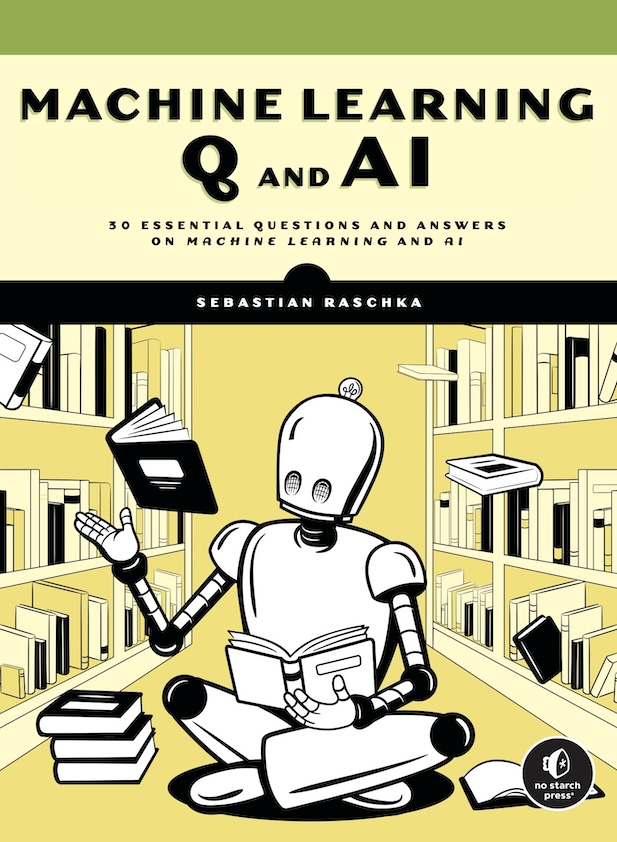Top Posts

These are the most impactful open-source AI projects shaping the future of Generative AI right now. From agent frameworks and autonomous dev agents to cutting-edge LLM orchestration and inference engines—these tools are powering the next wave of innovation in production-ready GenAI systems.

If you think "RAG is dead," think again. Benjamin Clavié and I compiled annotated notes from our RAG optimization and evaluation series, highlighting why Retrieval-Augmented Generation (RAG) is only beginning to realize its potential. We challenge the status quo of single dense vector representations and traditional IR metrics, arguing for richer, more nuanced approaches. Key takeaways include: the need for new evaluation metrics focused on coverage and diversity; the ability of retrieval models to reason and follow complex instructions; the superiority of late-interaction models that preserve token-level detail; and the importance of using multiple, specialized representations rather than searching for a one-size-fits-all embedding. Dive into our series to see why RAG’s future is brighter than ever.

Comprehensive, step-by-step guides are now available for fine-tuning and running every major large language model (LLM) using Unsloth AI. Each guide features in-depth technical analysis, best practices, and detailed explanations of Unsloth AI’s unique bug fixes and optimizations for each supported model. Users will learn optimal settings, how to fine-tune models with provided notebooks, and gain access to a complete directory of all model variants. The guides are designed to make advanced LLM customization accessible, efficient, and memory-friendly—even on consumer hardware—by leveraging Unsloth’s innovations like QLoRA, LoRA, gradient checkpointing, and support for a wide range of architectures including Llama, Mistral, Qwen, and Gemma

Hamel Husain and Shreya Shankar, creators of the world’s leading AI Evals course, have distilled answers to the most common questions they’ve received while teaching over 700 engineers and product managers. Their resource covers practical challenges in evaluating large language models (LLMs) and retrieval-augmented generation (RAG) systems, including model selection, annotation tools, evaluation metrics, error analysis, and more. They share dozens of free videos, blog posts, and resources to address widespread misconceptions and provide actionable advice. Their approach emphasizes hands-on, tool-agnostic methods, prioritizing error analysis and customized interfaces for reviewing AI outputs. The FAQ is designed to help teams build more reliable, production-ready AI systems by focusing on evaluation as a core part of the development process, not just a final checklist

The Harmonic Hot 25 list spotlights the world’s most promising early-stage startups entering Q3 2025 with exceptional momentum, as ranked by aggregated investor interest from hundreds of top VCs. All ten highlighted companies are AI-native, building foundational tools, platforms, and agents that are reshaping industries from customer support and procurement to finance and web development. These startups—such as Lovable, Profound, LangChain, Eloquent AI, Didero, Artisan, wordware, Tabs, Chalk, and Sapien—are at the forefront of AI-driven automation, workflow simplification, and intelligent business solutions, making them essential to watch for anyone following the future of AI innovation

After teaching myself generative AI from scratch, I became the go-to AI expert in my Microsoft team. Here are my favorite resources that can set you on the same path—no matter your starting point. This curated list includes five essential books on machine learning systems, LLM deployment, and AI engineering; five hands-on GitHub repositories; five must-watch YouTube videos; five comprehensive learning hubs; and a leading newsletter for ongoing updates. These resources cover everything from foundational concepts and system design to practical coding, agent building, RAG techniques, and production deployment. Whether you’re prepping for interviews, building systems, or looking to lead AI initiatives, this roadmap will accelerate your GenAI journey and help you stand out in your organization.

Workflow engineering is emerging as a foundational discipline for AI engineers and users, sitting alongside context engineering as a "must-have" skill. While context engineering ensures agents have the right information at every step, workflow engineering focuses on designing repeatable, multi-step processes—often involving multiple LLM calls and tool integrations—that automate tasks traditionally performed by humans, such as customer support, legal research, and report generation. Unlike simple ReAct agents, which can be too unconstrained for complex tasks, workflow engineering enables the creation of structured, reliable, and context-aware agentic workflows. These workflows combine the adaptability of AI agents with the predictability of traditional automation, allowing for dynamic planning, tool use, and iterative improvement. Mastering workflow engineering empowers both technical and non-technical users to describe and automate sophisticated processes, ensuring AI delivers meaningful, production-grade outcomes

Context engineering is now recognized as the most critical discipline in building effective AI agents. Unlike prompt engineering, which focuses on crafting single instructions, context engineering is about dynamically assembling and managing all the information, tools, and state an agent needs to perform well at each step. This includes system prompts, user input, chat history, long-term memory, retrieved knowledge, tool definitions, and more. The LangChain team reviews four core patterns—write, select, compress, and isolate—for structuring and optimizing context, and explains how LangGraph enables developers to implement these strategies for robust, scalable agent workflows. By mastering context engineering, teams can avoid pitfalls like context poisoning, distraction, and confusion, ensuring agents remain accurate, efficient, and aligned with user intent

LoRAX by Predibase is a groundbreaking open-source framework that enables users to serve thousands of fine-tuned large language models (LLMs) on a single GPU, dramatically reducing infrastructure costs without sacrificing speed or performance. With features like dynamic adapter loading, multi-adapter batching, quantization, and OpenAI-compatible APIs, LoRAX supports simultaneous, production-scale inference for diverse model variants. It’s fully production-ready, shipping with Docker images, Helm charts, and comprehensive observability, and is licensed under Apache 2.0 for commercial use

Paweł Huryn’s 2025 AI Product Management roadmap offers a focused, modern path for breaking into AI PM roles without getting lost in technical jargon or endless tutorials. The guide emphasizes understanding the concepts that matter—like LLMs, embeddings, and RAG—while mastering practical skills such as prompt engineering, no-code fine-tuning, and building prototypes. It includes curated resources for each stage: from foundational knowledge and hands-on prompting, to experimenting with AI agents, evaluating models, and leveraging the best tools for rapid product development. This roadmap is designed to drastically shorten the learning curve for aspiring and current PMs, helping them build, ship, and evaluate AI products confidently and efficiently

To support students, interns, and professionals preparing for tech interviews or deepening their expertise, all 30 chapters of "Machine Learning Q and AI" by Sebastian Raschka are available for free this summer. The book addresses 30 fundamental and advanced questions in machine learning and AI, each in a concise, self-contained chapter featuring clear explanations, diagrams, and hands-on exercises. Covering topics from neural networks and transformers to data-centric AI and model evaluation, it’s an invaluable resource for anyone looking to strengthen their understanding or prepare for interviews in the field

his guide demonstrates how to create a fullstack agent application with LangGraph and the LangGraph Platform, featuring custom authentication and payment integration. LangGraph, an orchestration framework built by LangChain, enables developers to design sophisticated agent workflows using a graph-based structure—ideal for complex, multi-step processes. With built-in support for custom authentication, middleware, and usage tracking, you can deploy secure, production-ready agents that handle sensitive operations like payments. The tutorial covers everything from defining agent states and nodes to integrating external tools and managing user sessions, making it a practical resource for building advanced, real-world AI agent systems.

Discover the next evolution in AI with ambient agents—intelligent systems that seamlessly operate in the background, anticipating needs and automating tasks without explicit prompts. The latest LangChain Academy course provides hands-on instruction for building your own ambient agents, covering core concepts, real-world applications, and step-by-step development using LangChain’s powerful framework. Whether you’re a developer, product manager, or AI enthusiast, this course will equip you to create proactive, context-aware agents that enhance productivity and user experience.

This tutorial by Tuana Çelik demonstrates how to create a real-time, event-driven notetaker agent for Zoom meetings using Zoom’s RTMS (Real Time Media Streams) and LlamaIndex agent workflows. The agent listens to live meeting events—such as attendees joining or leaving, live transcripts, and meeting end signals—and automatically creates a Notion notes page, logs to-dos as the conversation unfolds, and generates a meeting summary when the call concludes. The workflow is fully open-source and leverages custom event handling to synchronize Zoom meeting data with Notion, providing an intelligent assistant that evolves with the flow of conversation

This post gathers the most frequently asked questions from our AI evaluation course, providing clear, actionable answers to common challenges in LLM and AI system evaluation. Topics include model selection, annotation tooling, evaluation metrics, debugging, synthetic data generation, and best practices for resource allocation. The FAQ aims to help practitioners make informed decisions about building, testing, and improving AI systems, with practical advice for both technical and strategic aspects of evaluation

A curated set of essential learning materials for anyone interested in evaluating AI agents—from foundational tutorials to advanced tools and performance metrics.

The software bottleneck has shifted—from typing faster to thinking clearer. This in-depth piece by Greg Ceccarelli and SpecStory explores how AI agents change how we develop, secure, and reason about code.

Uber’s engineering team built AI agents with LangGraph to automate code fixes at scale—saving over 21,000 developer hours.

A highly detailed 100+ page tutorial by Hanane D. on building collaborative AI agent workflows for financial health analysis—using LlamaIndex, FinanceToolkit, and multiple LLMs.

RAGFlow is an open-source engine designed to build powerful RAG pipelines that deeply understand complex documents—with accurate citations and support for multimodal data and web search.

A well-structured directory is essential for scalable and maintainable AI development. This guide outlines a practical folder structure for organizing your AI or ML projects from day one.

A comprehensive GitHub resource offering deep-dive tutorials, real-world agent implementations, and scalable examples for building production-ready LLM systems—designed for beginners to experts in AI engineering.

DSPy is a powerful Python framework that lets you build AI applications using structured, modular code instead of fragile prompt engineering. It helps you design, debug, and optimize LLM-based systems like classifiers, RAG pipelines, and agents more reliably.

OpenAI quietly released a 34-page technical manual on how to build AI agents — and 99% of people will likely miss it. I spent 3 days coding every single pattern shared in the manual and distilled it into this practical, hands-on guide. If you want to build autonomous AI agents, this will save you hours of trial and error.

(explained with visuals & open-source code) 1️⃣ 100% local MCP client - An MCP client is a component in an AI app (like Cursor) that establishes connections to external tools. Learn how to build it 100% locally. - Full walkthrough: https://lnkd.in/gtaEGvFZ

A curated list of GitHub repositories that will help AI Engineers level up their skills with LLMs, agents, prompt engineering and more.
